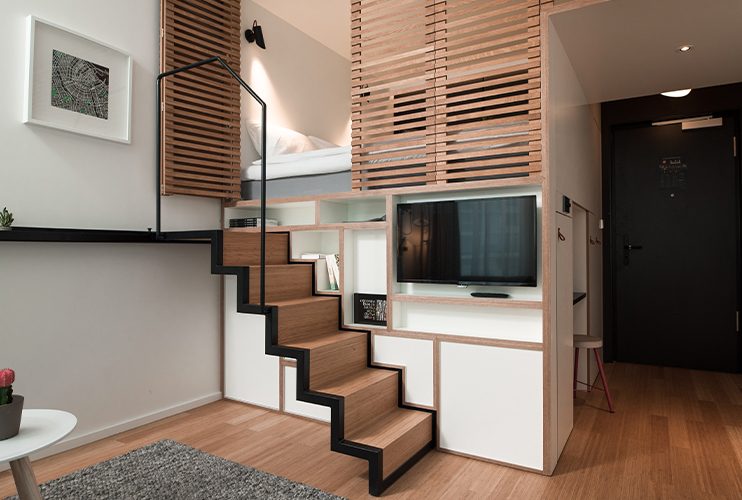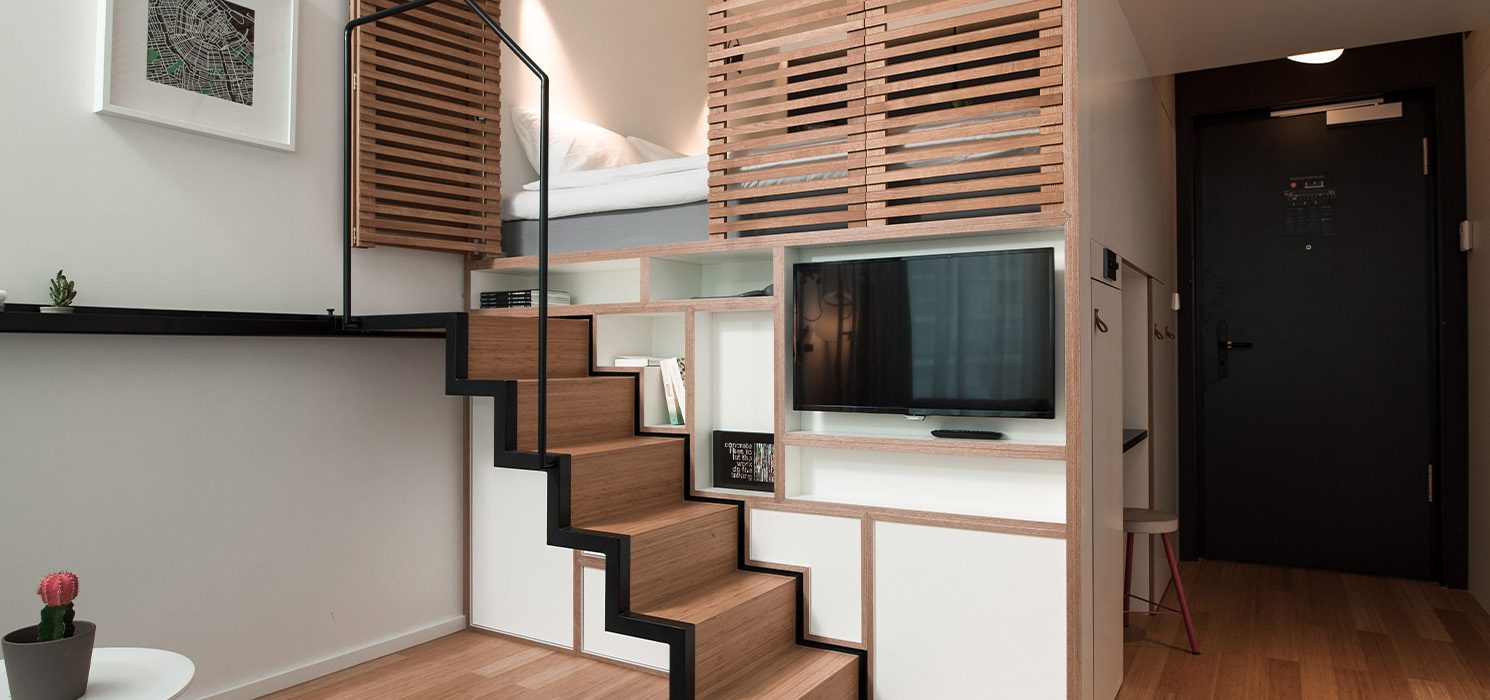In the second post of our 6-Part Coliving Blog Series, Leah shares how the Hybrid Hospitality trend is changing the way we think about travel and hospitality.
Coliving Consultant and Community Experience Specialist, Leah Ziliak is one of the world's leading experts in the industry. In the second post of our 6-Part Coliving Blog Series, Leah shares how the Hybrid Hospitality trend is changing the way we think about travel and hospitality.
Working from the rooftop of a trendy hotel in Cape Town with 200 Mbps internet, a dedicated call room, and a barista serving up the perfect flat white, it's easy to see just how much the hospitality world has changed over the last decade. Remember when the 'business centre' of a hotel meant a couple of clunky desktops facing a beige wall with a printer?
With a coworking space, community events, group fitness classes, and even a mini movie theatre and a popcorn machine, this is more than just a hotel; it's an experience. A Hybrid Hospitality experience.
Hungry? Scan a QR code at your coworking desk and the cafe downstairs will deliver your falafel wrap and cold-pressed juice right to you. Bored? Download the community app and you’ll see a list of social events to choose from. Stressed? Book a massage using your smartphone and easily access the spa with keyless entry.
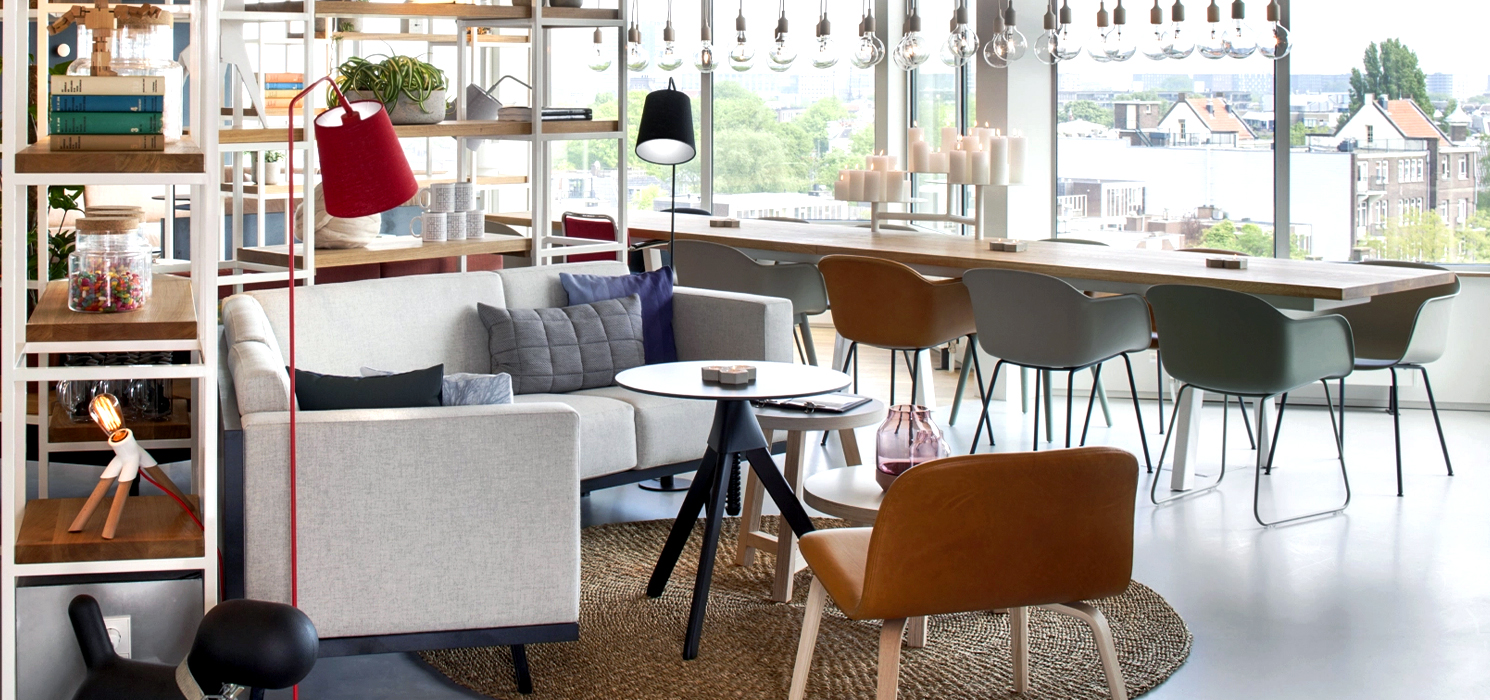
So, what exactly is Hybrid Hospitality?
Hybrid Hospitality is essentially a blend of the traditional hotel experience, with elements of the coworking and coliving spaces as well as
restaurants, wellness, retail and more. With Hybrid Hospitality, people can live, stay, eat, drink, work and socialise all in one dynamic space. Hotels, hostels, restaurants, bars and other hospitality venues are making the shift to create multifunctional spaces that foster connection and enhance the overall guest experience.
Hybrid Hospitality is a growing trend, and for good reasons; it’s enabling hotels to expand their offerings, bring underutilised spaces to life, connect guests to a community, and draw in a whole new demographic.
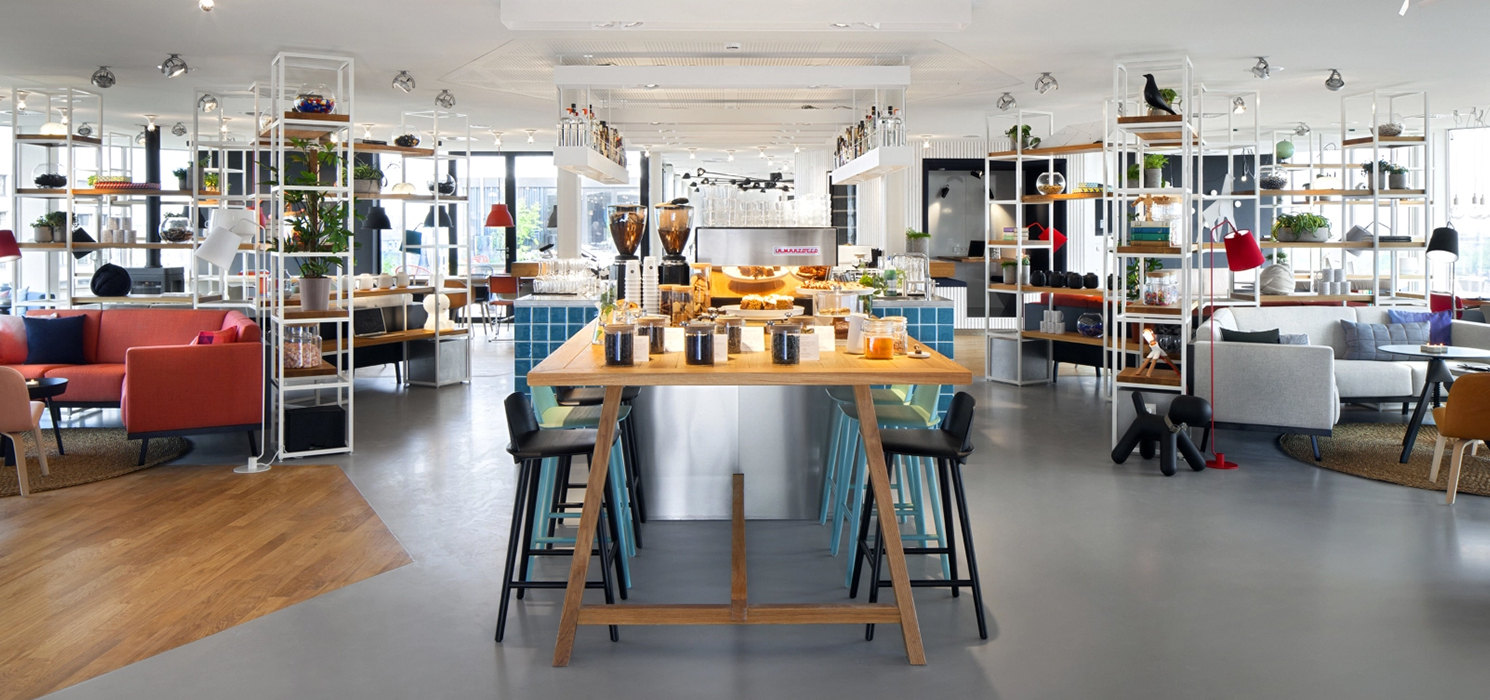
So, why are we seeing such a massive push toward Hybrid Hospitality?
- Consumer Trends:
In recent years, the hospitality industry has seen a shift in consumer trends. Millennials especially were looking for more out of the hotel experience and wanted to be part of a connected, engaging environment.
Traditionally, hostels offered a great community experience, but were lacking when it came to high-quality spaces and superior hospitality experiences. On the flip side, hotels offered great spaces and excellent hospitality, but lacked any sort of community or connection.
Because of this, we saw innovative hostel brands listening to those needs and creating a more elevated experience, offering work-friendly environments, well-designed spaces, private room options, and expanding the typical backpacker demographic.
We also saw hotel brands focusing on community, events, neighbourhood integration, keyless access solutions for increased flexibility, and rethinking common areas to create an experience that went beyond just a comfy bed and room service.
- The Pandemic Effect:
Since the beginning of the pandemic, we’ve seen an even greater expansion of the Hybrid Hospitality trend. The number of remote work opportunities has grown exponentially, meaning that people have more freedom to choose how/when/where they work. The work-from-anywhere movement has had a massive impact on the hospitality industry.
Why take just a weekend trip, when you can bring your laptop and make it a month-long trip? Providing guests with ‘live-and-work-friendly’ spaces enables brands to cater to these longer-term stays.
We’re also seeing a rise in remote work retreats and workations, with some companies offering travel perks to their employees, such as the ability to spend up to 6-8 weeks working from a location abroad. Employees are more mobile than ever before and the hospitality industry is ready to act as a home away from home for this new business traveller.
- Digital Nomadism:
With the rise of remote work, we’ve also seen an increase in long-term travellers. Digital Nomads often give up their homebase altogether and choose to live from different hotels, hostels, and coliving spaces around the world.
It used to be that business trips and vacations were the only reason to leave home, now for an estimated 35 million digital nomads around the world, ‘home’ is constantly changing and can be anywhere in the world. Extended travel was once only a privilege for the super wealthy, but has now become an opportunity for the everyday remote worker. Hospitality brands are adapting to the needs of this growing demographic.
Hospitality brands are adapting to the needs of this growing demographic who have a different set of requirements than your typical vacationer. Digital Nomads are incredibly well-travelled, tech-savvy and place a high value on freedom and flexibility within their living spaces.
- Expanded Amenities:
For many years, ‘hotel amenities’ were limited to a few different things - bathrobes, a gym, tiny bottles of shampoo and overpriced laundry services. But, in the modern-day hospitality world, it can (and should) be a whole lot more. And, as more and more forward-thinking brands provide these extras to their customers, expectations will be higher.
Today, amenities can mean providing guests with opportunities to socialise through community events and connecting to the city in a more authentic way. Many hybrid hospitality brands are also looking to serve as a neighbourhood hub and integrate more effectively into the local community.
Amenities can also mean implementing tech-driven services like digital check-in, keyless entry, and the ability to make restaurant or spa reservations from your smartphone to create a flawless overall experience.
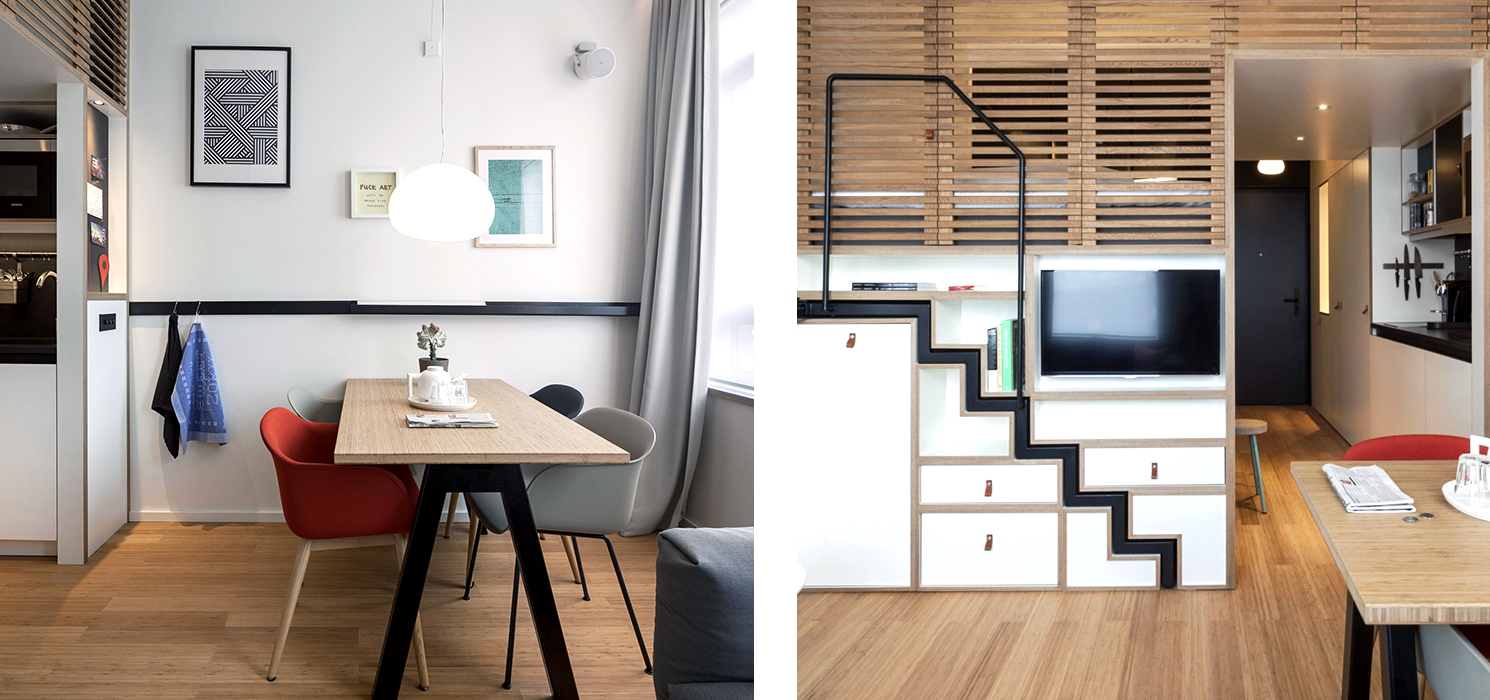
In general, this new wave of guests are looking for much more from their hospitality experiences and brands are finding unique ways to provide increased value to their customers by offering flexible workspaces and tech-driven solutions such as a digital key to access the facilities on-the-go.
With endless hospitality options out there, why not spend your money with the brands that truly align with who you are and what you need?
The Hybrid Hospitality model not only benefits consumers who now have a myriad of interesting choices at their fingertips, it clearly benefits the industry as well. By providing these unique customer-centric experiences, hospitality brands are able to generate new revenue streams, optimise their spaces, create brand loyalty and appeal to a much wider range of guests. Not to mention, they’re able to enhance their entire guest experience in a very forward-thinking way.
The coliving concept is not simply a fad that will be fast forgotten - it’s an exciting time for the entire hospitality industry, but it’s also a key turning point for brands that want to stay competitive and relevant in the future. There are plenty of spaces in the world where you can get a quiet night’s sleep and a decent meal. But, the brands that are standing out above the rest are the ones who are creating something truly unique - both functional and engaging. It’s a whole new modern hybrid world out there and the smartest brands are here for it.
